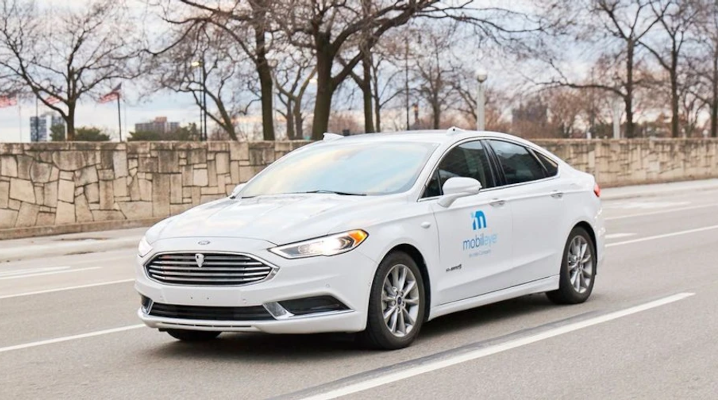 INFRA
INFRA
 INFRA
INFRA
 INFRA
INFRA
Mobileye Global Inc. today reported better-than-expected results for the second quarter, but lowered its full-year guidance on account of a slowdown in demand for its vehicle chips.
Shares of the Intel Corp. unit tumbled more than 5% on the trimmed financial projections.
Mobileye makes chips that automakers use to equip their vehicles with partly autonomous driving features. The company’s fastest processor, the EyeQ 6 High, combines a 32-core central processing unit with deep learning accelerators and other specialized compute modules. Cars equipped with Mobileye’s technology can automatically switch lanes, park and navigate traffic jams.
Intel bought the company in 2017 for $15.3 billion and floated its shares on the Nasdaq five years later through a $861 million listing. The chip giant remains Mobileye’s majority shareholder.
Mobileye generated adjusted net income of $76 million in the three months ended June 29, which translated into adjusted earnings of nine cents per share. Analysts were expecting eight cents. Mobileye’s $439 million in revenue topped the consensus estimate as well by more than $10 million.
Compared with the year-ago quarter, Mobileye’s sales declined by 3%. On a quarter-over-over basis, however, the company managed to boost its sales by 84%. The reason for the sudden demand jump has to do with an excess inventory of several million EyeQ chips that Mobileye’s top customers accumulated earlier this year. Those customers worked through much of this inventory in the second quarter and consequently began ordering new silicon from the company.
“We are glad to report that the excess inventory at Tier 1 customers that meaningfully impacted our business in the first half of 2024 appears to be almost fully behind us,” said Mobileye Chief Executive Officer Amnon Shashua.
However, Shashua cautioned that the upside from the excess inventory reductions will be offset by several new headwinds. The company logged a decline in orders from Chinese carmakers for the second half of 2024. Additionally, an unnamed auto sector customer has decided to delay the high-volume launch of an advanced driver-assistance system powered by Mobileye technology.
Those developments have prompted the company to lower its EyeQ shipment projections for the year. Mobileye now expects to sell between 28 million and 29 million of its vehicle chips in 2024, down from the 31 million to 33 million it had projected earlier.
The company is also foreseeing reduced demand for SuperVision, a partly autonomous driving system that combines two EyeQ chips with cameras, a radar sensor and navigation software. The company expects to ship between 110,000 and 130,000 of the systems in 2024, a significant reduction from the up to 195,000 it forecasted previously.
The decreased demand is expected to leave its mark on Mobileye’s full-year sales. Instead of the $1.83 billion to $1.96 billion it was projecting until now, the company now expects to close the books on 2024 with $1.6 billion to $1.68 billion in revenue. Mobileye has lowered its profit guidance as well.
The chipmaker sounded a more optimistic note about its medium-term growth prospects beyond 2024. Mobileye stated that its SuperVision and Chauffeur systems “remain on-track for significant” design wins in the second half of 2024. Design wins are technical collaborations with automakers that can lead to high-volume chip orders later on.
Chauffeur is a scaled-up version of Mobileye’s SuperVision system that features more processing power and sensors. It allows vehicles to operate on a fully autonomous basis under certain conditions, notably when they’re on highways.
Mobileye’s long-term development roadmap focuses on Driver, an even more advanced autonomous driving system that can operate under a broader range of road conditions. It combines four of the company’s top-end EyeQ 6 High chips with more than a dozen cameras, radar units and lidar sensors. Mobileye expects the first Driver-powered autonomous vehicles to roll out in 2026.
THANK YOU